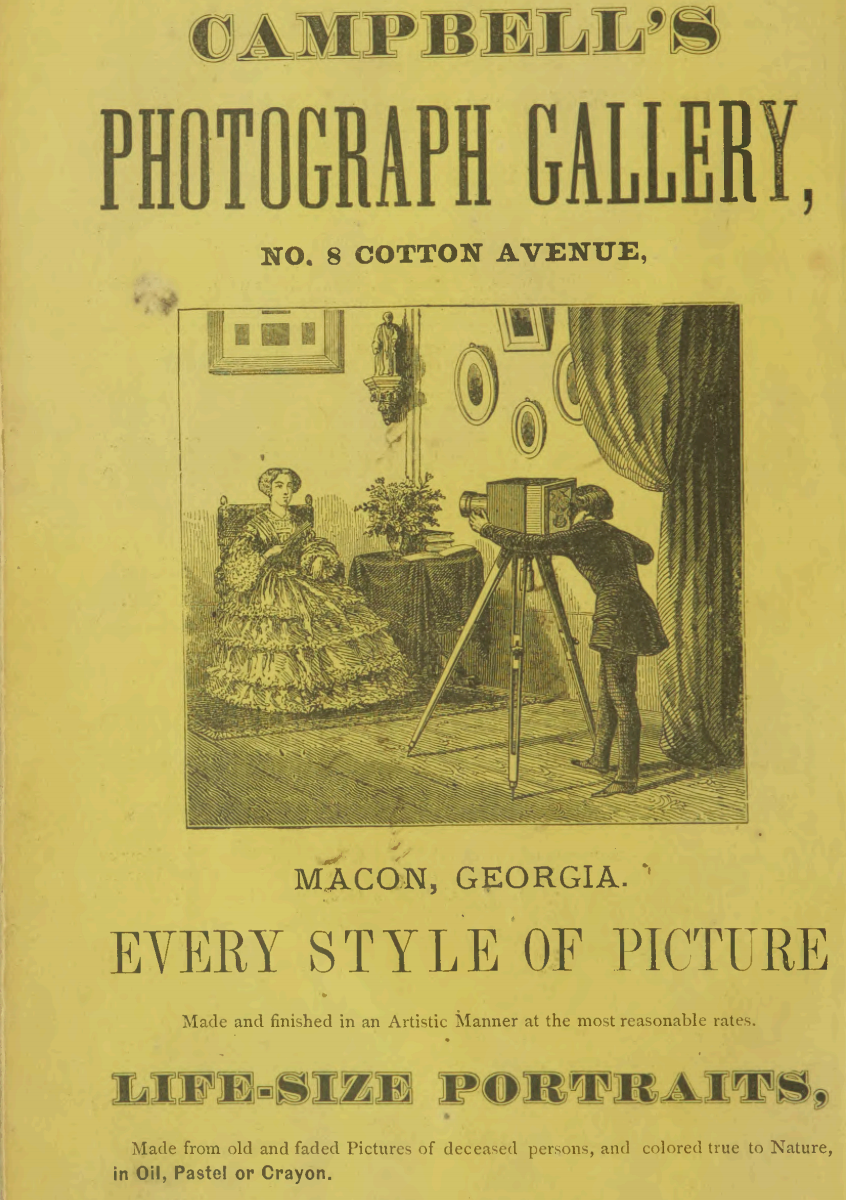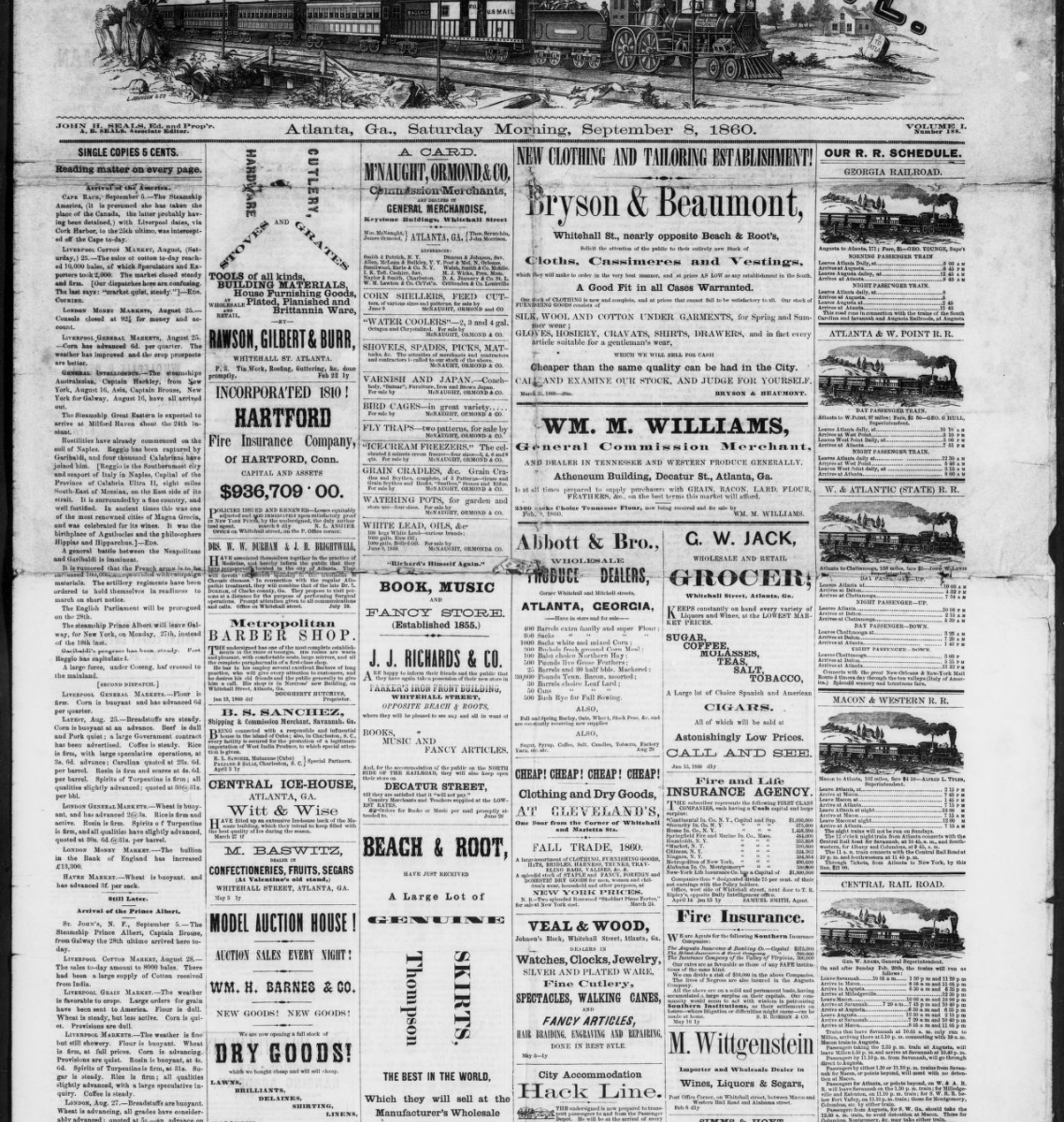My interest in Georgia photographers and visiting photographers who worked in Georgia, as well as their associates, began in the late 1970s. Throughout my career as an archivist and librarian I built upon this interest when time allowed. When I retired, this became a full-time pursuit, and since 2013, I have worked on researching and writing about these photographers in my blog Hunting and Gathering.
For my Georgia Photographers Documentation Project, I use many research sources, and my database now has close to 3,700 records, documenting about 2,200 photographers. One of my all-time favorite sources, the DLG’s Georgia Historic Newspapers collection allows me to search for advertisements, notices of formed or dissolved partnerships, and personal information, including obituaries on these photographers and their associates. I also find some wonderful articles about photography itself.
The addition of so many smaller town and city newspapers to this collection of historic newspapers has proven to be great fun! In the last week alone, I turned up four more women who worked in the profession just after the turn-of-the century–Amanda Cain in north Georgia, Mrs. Clark (possibly Mrs. H.S.) in east Georgia, Mrs. W. B. Standifer in southwest Georgia, and Effie West in southeast Georgia. Mrs. Standifer set aside Wednesday and Saturday especially for her African American customers, which is not as uncommon as it sounds, and I have written and spoken on this topic. Now I will pursue these women’s names both in and out of the DLG’s Georgia Historic Newspapers collection to flesh out each record in my database which now documents over 260 women.
The other excitement for me these past few weeks has been the exploration of the added Columbus and Macon city directories which were made available this spring via the DLG in partnership with the Georgia Public Library Service City directories are another “must-have” in my research. I already had a lot of the directory information from these two cities, but I lacked the earlier years, and that is exactly what I found in this new resource–Columbus city directories beginning in 1859, and Macon’s beginning in 1860. It took me about a week to finish that task, but I was able to find new advertisements, and add or correct work years and work addresses for photographers and their associates working in those two cities.
I have used the resources of the Digital Library of Georgia so often the last ten years, I know I have a stake in it, and all Georgians do. The fact that all this information is available to those in and out of state for free is wonderful. In my blog posts I try to remember to thank the DLG when I use any of the excellent data that they make available to us. I look forward to the upcoming new additions!
—E. Lee Eltzroth, independent scholar
https://georgia-photographers.com/,
and president / CEO, Friends of the Peachtree City Library



